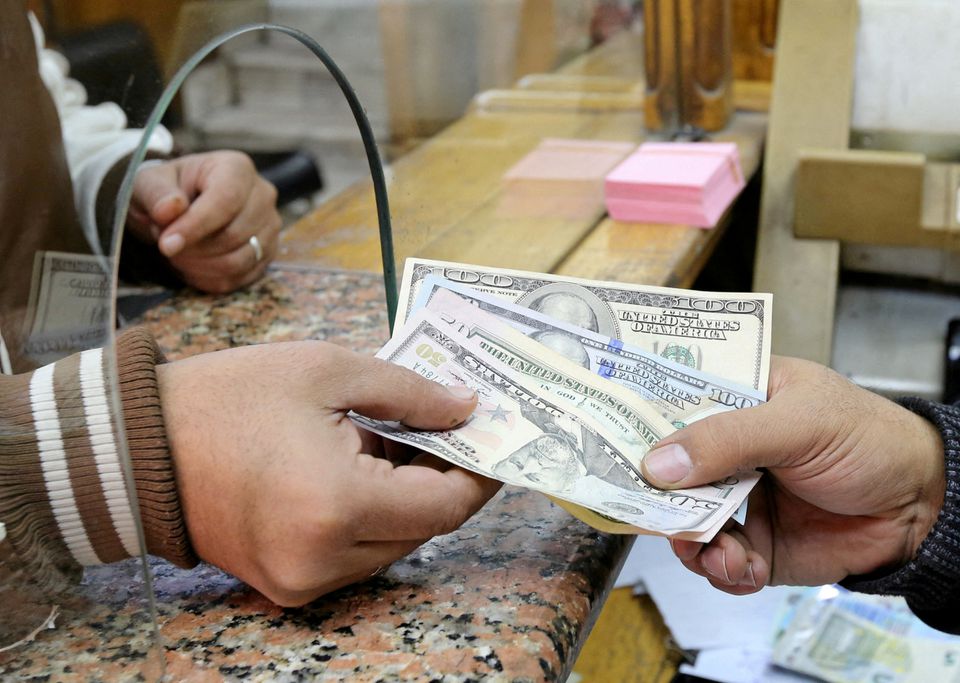Egypt’s pound fell about 3 per cent to 23.8 against the dollar as trading resumed on Sunday, Refinitiv data showed, after authorities committed to a flexible exchange rate under an International Monetary Fund support deal.
The pound slid about 14.5 per cent to 23.1 against the dollar on Thursday after they pledged a “durably flexible” exchange rate in conjunction with a staff-level agreement for a $3 billion IMF extended fund facility.
Egypt’s currency has been held steady or allowed to depreciate only gradually following previous sharp devaluations in 2016 and this March. It has weakened about 34 per cent against the dollar so far this year.
In a note on Thursday, JP Morgan said it considered the pound to be fairly priced, and that it expected a gradual adjustment to 23.5 to the dollar by the end of the year.
“We expect USD/EGP to remain under pressure in the coming days as it finds a clearing level, but we view (Thursday’s) adjustment as sufficient to close most of the external imbalances,” the note said.
Egypt has been struggling to cope with the impact of the war in Ukraine, which led to rapid outflows of portfolio investments, a hike in the commodity import bill and a drop in tourism revenues.
It introduced a mandatory requirement for importers to use letters of credit, leading to a sharp slowdown in imports and bottlenecks at ports.
The central bank has said that requirement will be gradually phased out by December.
“Moving forward, it is essential that Egypt follows through on its promise for currency flexibility rather than managing future deprecation and allowing imbalances to build back up,” said Patrick Curran, a senior economist at Tellimer.
The IMF programme could catalyze enough funds to meet external funding needs estimated at $40 billion over the coming year, with devaluation and an out-of-cycle 200 basis point interest rate hike on Thursday helping to contain financing needs by dampening import demands, Curran said.







Click here to change your cookie preferences